Contributor: Andrea Yeh
Work and Life is a radio program hosted by Stew Friedman, director of the Wharton Work/Life Integration Project, on Sirius XM’s Channel 111, Business Radio Powered by Wharton. Every Tuesday at 7 pm EST, Stew speaks with everyday people and the world’s leading experts about creating harmony among work, home, community, and the private self (mind, body, and spirit).
On Work and Life, Stew Friedman spoke with Guy Spier, author of The Education of a Value Investor: My Transformative Quest for Wealth, Wisdom, and Enlightenment. He writes about what really matters in work and life and why these questions are important for a successful investor.
The following are edited excerpts of their conversation.
Stew Friedman: Let me just start by asking you about what is probably your greatest claim to fame: having bid over $650,000 for a lunch with Warren Buffett. That’s more money than most people on this planet make in a lifetime. Why did you spend so much to spend lunch with Warren Buffett?
Guy Spier: 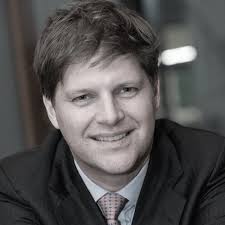 Well, I should say that I got to buy in at discount. I was one-third of that, and my bidding partner Mohnish Pabrai was two-thirds of that. I went with my wife, and Mohnish went with his wife and two daughters, so I was one of six guests. If you think of the numerous amounts that we’ve given to charity, where all you get is a plaque or your name on a building but you don’t get to hang out with somebody who’s unusually interesting, then it already puts a different light on it. Mohnish understood more than I did at the time that to spend time in the company of extraordinary people is – if you can afford to do it – very, very worthwhile, even if you have to spend a lot of money on it. There are a small number of people who’ve figured out an awful lot more than we have, and while studying them from afar is good, being in their presence can be an extraordinary growth accelerator.
Well, I should say that I got to buy in at discount. I was one-third of that, and my bidding partner Mohnish Pabrai was two-thirds of that. I went with my wife, and Mohnish went with his wife and two daughters, so I was one of six guests. If you think of the numerous amounts that we’ve given to charity, where all you get is a plaque or your name on a building but you don’t get to hang out with somebody who’s unusually interesting, then it already puts a different light on it. Mohnish understood more than I did at the time that to spend time in the company of extraordinary people is – if you can afford to do it – very, very worthwhile, even if you have to spend a lot of money on it. There are a small number of people who’ve figured out an awful lot more than we have, and while studying them from afar is good, being in their presence can be an extraordinary growth accelerator.
SF: One of the things you point to in your book is the importance of surrounding yourself with people whose values are aligned with yours. That’s the case with you and Buffett, right?
GS: Absolutely. Here’s what happens when you spend time with Warren Buffett. You learn how little time and energy he spends doing things he doesn’t like to do. One big thing about being authentic is that it just takes up less energy. When you are authentic with yourself and with the world, you waste less energy trying to be different things to different people. We often try to present one mask at work and another mask elsewhere. We can do it, but it just takes so much energy– energy that could be used more productively.
SF: It’s a topic that we’ve been talking about a lot on this show lately –the masks that we wear and the costs of having to disguise who we truly are in the workplace. It’s just so much simpler and more elegant to be who you are, but it takes a lot of courage to do that, and you had to muster quite a bit of courage to find who you really were in your work, didn’t you, Guy?
GS: My book was useless until I got the courage to be honest with the world and write about this horrible place where I worked straight out of business school. The funny and strange thing about courage in the work-life business environment is that it seems that when we have the courage to be honest, people respect us for it. I remember the first time I felt as though I really had courage in my fund world. I was in an investor meeting, and somebody asked me, “So Guy, you’ve talked about the things that you buy. Could you tell us what your sell discipline is?” I mustered some courage in that moment to say, “You know what, I’ll be honest with you. I suck at selling. I don’t have a good sell discipline. Let me tell you why.” There was a sort of sharp intake, a gasp of breath with some people – at least that’s what I sensed. I walked out of there with that really horrible feeling that I was going to get all these redemption requests the next day.
SF: So you thought people would want to sell your funds rather than stay with you?
GS: Yeah, that’s what I was afraid of, but instead I was given respect. People understood more about who I was, and I attracted more of the right kind of investors into my fund as a result. You asked me about spending time around the right people. I had this lunch with my friend Mohnish and he mentioned various books to me. One of the books that he mentioned was the autobiography of Mahatma Gandhi. So after this meal, I went out and bought the book, but it sat on my shelf for two or three years before I read it. When I finally read it, I discovered that Mahatma Gandhi, in his autobiography, talks about his experiences with prostitutes. My jaw dropped. It was utterly shocking to me that he would do that, and that was an incredible example of the power of authenticity.
SF: Is that what gave you the courage to declare as much as you did about your early days post-MBA?
GS: I think that that was part of it. It was this determination to be honest with the world and that I had to do it at this point in my life because if I didn’t do it now, I might never do it. But it wasn’t just Mahatma Gandhi. Warren Buffett is extremely honest with the world. Charlie Munger, the vice chairman of Berkshire Hathaway and the person who Warren Buffett thinks of as his partner, has a great line: “It’s better not to lie. Then you don’t have to remember what you said to whom.”
SF: That’s a core principle of the great leaders I have known and admired, and it’s wonderful to see how you have demonstrated it. I want to step back here and ask what the essence of your idea in the book, The Education of a Value Investor, is?
GS: I think you could actually bring it down to the idea that it was only when I became authentic with myself that my career and my life really got started. It was only when I became authentic with my shortcomings as an investor and around money that I could really start to go about conquering my drawbacks, and that made me ultimately far stronger. The ultimate message is to really find ourselves in finance or with our own finances and with investing. The ultimate answers all lie within ourselves; they don’t lie outside. When we’re experiencing difficulties in the world in our careers, the real place to look is in our own backgrounds, foibles, and weaknesses.
SF: And how did you come to understand that? This is ancient wisdom in modern language and modern times. For you personally, in your journey of self-discovery, what led you to this recognition?
GS: I think one thing that was really important was the realization that the answers did not lie in economics, finance, or the capital asset pricing model, so the first thing was to know where not to look. I was living in New York City at the time. While New York City is a vortex for all sorts of reasons, it’s also a great place for people who are on a journey of discovery. There’s every different type of psychotherapist under the sun, and I must have tried them all. I started on a reading program of reading dozens of different kinds of books. Somebody who had a deep impact on me was Joseph Campbell, who wrote the book The Hero of a Thousand Faces. He’s got this idea of seeking your own bliss and that we should each be heroes of our own journey. When I read that and had that idea in my mind, I suddenly realized why things like the Iliad and the Odyssey are great stories that we continue to read in western civilization. The key point is that Odysseus is somebody who we should try to be like. He overcame his difficulties, and we have our own difficulties to overcome. We shouldn’t look at him as the hero and us poor humans as so useless. As is written in the literature of ancient Greece, he’s doing these epic battles, and for each and every one of us, there is an epic battle going on as well. It’s just that simple shift of mind – seeing ourselves as heroes – that gave me a lot more resources to start confronting my fears of writing about my horrible experiences in an investment bank. Now I had Odysseus by my side.
SF: I want to return to what lessons you want to try to impart to others who might be struggling. I know that there are people listening right now thinking, Gee, how did he do that? How did he just get off the treadmill of the very attractive and perhaps seductive world of finance to find his own path that was closer to his own values? How, in a nutshell, were you able to make that transformation?
GS: I saw myself as this investment banker at this bucket shop, and seeing Warren Buffett with shining lights on the hill, I had no clue about how to get from where I was to something closer to what he was. I think of the people who climbed Everest for the first time. Before he climbed Everest, Sir Edmund Hillary did not sit around saying, “Well I don’t know if I’ll ever make it to the top of Everest.” He said, “If I want to climb Everest, what kind of equipment do I need? What kind of training do I need?” And then he asked himself as he was going up, “Am I closer to the summit, or am I further away from the summit?” I think that that simple thinking is what I started applying in my life. I started asking myself, If Warren Buffett was sitting at my desk at this firm, what would he do? So I summoned the powers or the presence of these people who were heroes to me, and I started making modifications. The truth is that if Warren Buffett had been in my shoes, he would have walked straight out of there, and I didn’t do that. But the process doesn’t have to be perfect; it can be gradual. We need to make incremental steps. We need to never lose the dream, and we need to keep introducing things into our lives that might get us closer to that dream. I think it’s a lifelong process. When the time is right – I don’t think I’m a religious person, but there’s a sudden religious quality to this –the universe opens up to us, but it only opens up to us if we’ve been spending all of our time preparing, working really hard at it, and nibbling away at it. Now if you have somebody who’s sitting in a job earning money that their family may need, I don’t think that it is in any way practical to tell that person that he needs to make all these radical changes and that everything will work out fine. I don’t think it’s fair to tell them that it’s so simple. It’s not simple. The struggle is hard. That’s why we should consider ourselves as heroes. Odysseus didn’t make it home in a day. He had so many battles that he needed to fight, so many fears that he had to overcome.
SF: And what about you? Let’s get back to your story. Can you give us an example of a misstep that you made where you learned something useful in retrospect?
GS: My situation at that investment bank reminds me of the scene in the Titanic movie when the rich guy with the gun is trying to chase the guy who’s gone off with his fiancée, and he realizes that the ship is sinking. He suddenly notices that he’s focusing on the wrong thing. He should be focused on saving himself. There I was at that investment bank deeply embedded in the machinations of trying to win credit for the deals I felt I was bringing in. I was participating in the politics and incapable of standing back and seeing the bigger picture. I couldn’t see that I was never going to win in that environment and that winning in that environment would have compromised my soul to a horrible degree. That was just such a waste of time. That brings me to the one big misstep that I was going to share with you. So there I was – I had managed to start my fund, but I developed deep, deep envy. At the time, I was running a perfectly respectable fund with about $50 million in it, which was more than anybody needed to run a fund and to live a successful happy life. However, I was surrounded by classmates who were managing a hundred times the amount of money that I was managing.
SF: Making you feel puny, perhaps?
GS: As I write in the book, I felt like my very manhood was in question. I would have never admitted it to you or anybody else at the time, but what I was experiencing was the green monster.
SF: But you were able to get past that somehow. As the twenty-seven year old you were at that time, were you capable of the kind of insight that you’ve now gleaned over time to see that the person who matters most is the one that you look at in the mirror, not those who have ten times or a hundred times what you have in the bank?
GS: In my case, there were no big breakthroughs. It was about constantly exposing myself to opportunities to introspect through psychotherapy and YPO and entrepreneur forums. My view is that humanity is infinite, and therefore there are an infinite number of ways to introspect. I don’t think that any one way is better than any other way. It can be whatever works for you at the time, be it going to yoga classes, practicing meditation, taking part in your religious tradition, or exploring a new religious tradition. I think if I get it down to their core, a big part of what do religious traditions try to do is to preserve environments and conditions in which human beings discover their capacities to introspect.
SF: That’s what those rituals are all about, isn’t it? It’s about taking time to reflect on what matters.
GS: Absolutely. They’re this sort of vessel, but what’s really important is what’s being carried in the vessel. I think there’s a bias that books have. In a book, you get edited down, and so much has to be excluded, so you end up talking about the three big ideas or the one big idea and sometimes it’s not three or one big idea, it’s hundreds of small ideas. In my case, I think there was no one single thing that enabled me to suddenly see that I was consumed by envy. At some point, there was a painful realization, but there was something good on the other side. Once I realized it, I could clean it up pretty quickly. But exactly how I got there had something to do with surrounding myself with people who were better than I was. If you surround yourself with people who are slightly better, more honest, more authentic, and more capable of introspection, that’s going to rub off on you, and I think I was doing that. And it didn’t happen in three or four weeks or even five or six months. It was more like a decade of pushing in that direction.
To learn more about Guy Spier, visit www.aquamarinefund.com, or follow him on Twitter @gspier.
Join Work and Life next Tuesday at 7 pm on Sirius XM Channel 111. Visit Work and Life for a full schedule of future guests.
About the Author
Andrea Yeh  is an undergraduate junior majoring in Operations and Information Management and in International Relations.
is an undergraduate junior majoring in Operations and Information Management and in International Relations.
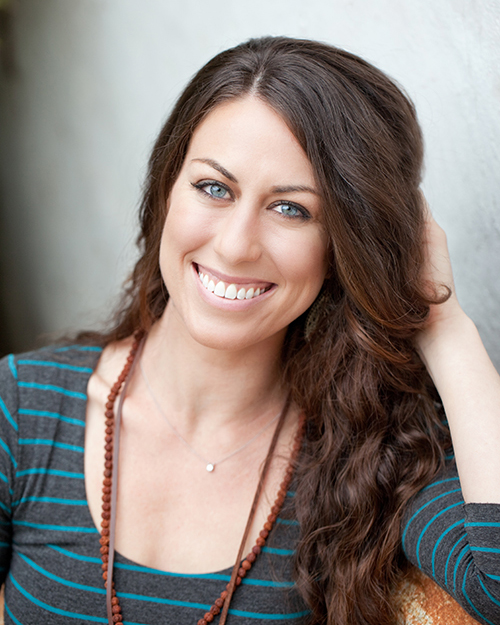 I love that sentiment because I think it’s really at the root of careers. Often career change is a question of how can I best be of service? Your question is one that I ask my clients a lot. For me, it’s how can I turn my challenges and struggles into something helpful for other people. That’s not to say that any of us would ever welcome really terrible times, but we recognize that they can be transformed and shared. We all get this level of compassion and depth from going through adversity that makes us stronger. I think sharing one’s own experience by telling your story is a great gift which has no monetary association at all, but it can be really key to helping each other through transitions or times of need. Sometimes I think life can be sort of like a seesaw: someone is up and someone is down. I think being able to help pull each other through confusing transitional times in our life is a huge gift.
I love that sentiment because I think it’s really at the root of careers. Often career change is a question of how can I best be of service? Your question is one that I ask my clients a lot. For me, it’s how can I turn my challenges and struggles into something helpful for other people. That’s not to say that any of us would ever welcome really terrible times, but we recognize that they can be transformed and shared. We all get this level of compassion and depth from going through adversity that makes us stronger. I think sharing one’s own experience by telling your story is a great gift which has no monetary association at all, but it can be really key to helping each other through transitions or times of need. Sometimes I think life can be sort of like a seesaw: someone is up and someone is down. I think being able to help pull each other through confusing transitional times in our life is a huge gift.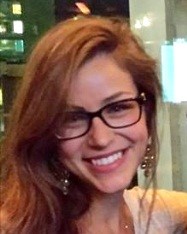 is an undergraduate senior in the Huntsman Program in International Studies and Business at Penn focusing on Management and Latin America.
is an undergraduate senior in the Huntsman Program in International Studies and Business at Penn focusing on Management and Latin America.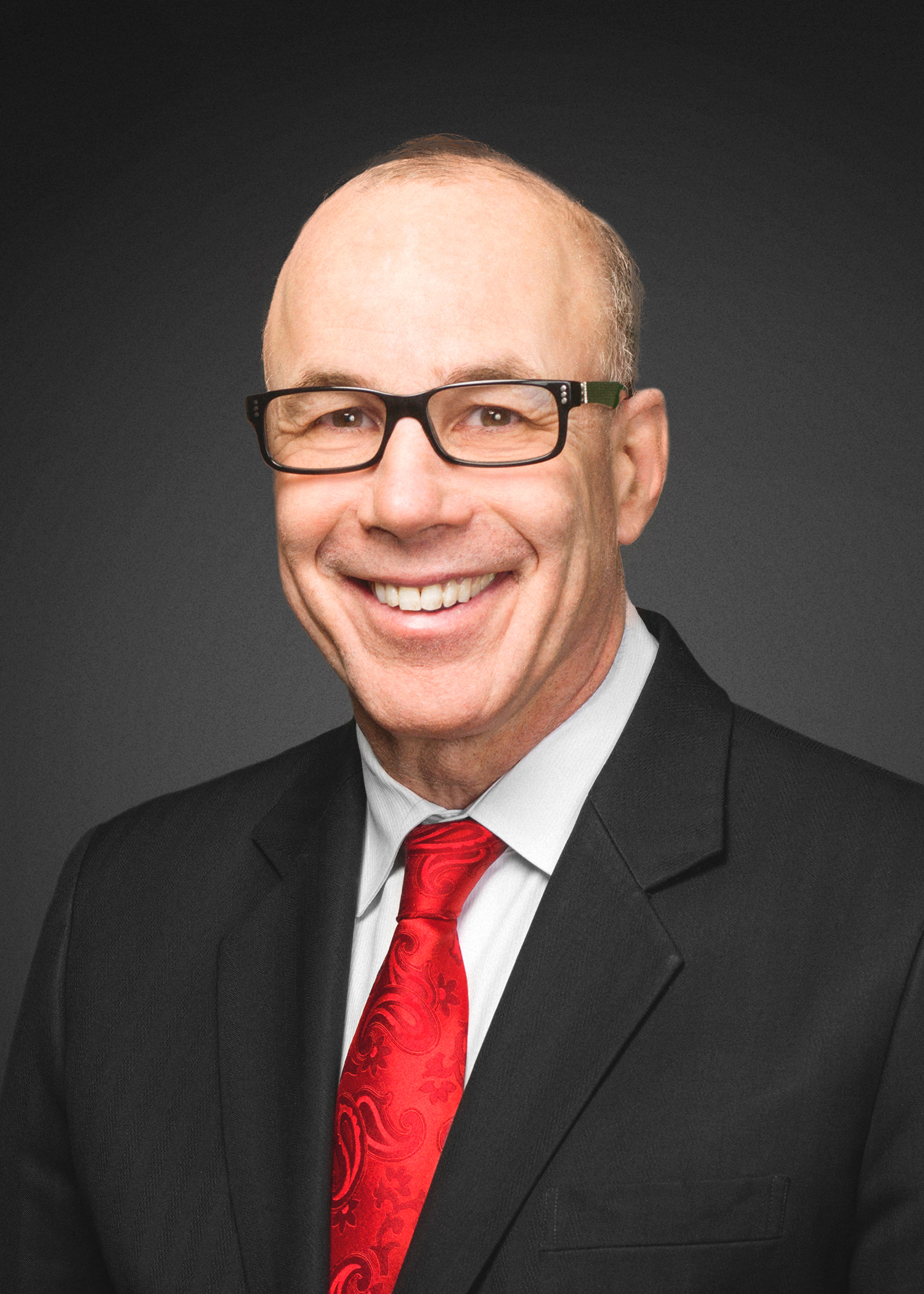 Part of what we’ve done in healthcare is focus on the past. Think about everything you can do as a consumer online. The Friday after Thanksgiving you can be in your pajamas watching Game of Thrones and do all your holiday shopping. But if you have a stomachache can you put “stomachache” on your iPhone and get an appointment with a doctor?
Part of what we’ve done in healthcare is focus on the past. Think about everything you can do as a consumer online. The Friday after Thanksgiving you can be in your pajamas watching Game of Thrones and do all your holiday shopping. But if you have a stomachache can you put “stomachache” on your iPhone and get an appointment with a doctor?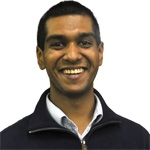 is an undergraduate junior at Wharton and in the Engineering School.
is an undergraduate junior at Wharton and in the Engineering School.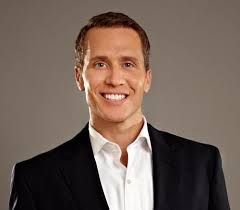 I’ve truly learned a lot from both of those experiences. I started boxing when I was at Duke University—college kid going down to a gym in the inner city there in North Carolina. What was fun for me was that I had this great boxing coach named Earl Blair. Earl Blair had grown up in the Depression, served in the military at the tail end of World War II, and was working in a warehouse when he was coaching me. His real passion, though, was teaching boxing, and he was really teaching life at night to a bunch of kids who really needed it in this gym in the inner city. One of the things that Earl always said to me when I was boxing was to “watch Derek.” Derek was one of my training partners—he was about 26 years old, a professional fighter, and a construction worker. Every time I’d step up to the heavy bags, to the speed bags, to the jump rope, Earl would always say, “Watch Derek.”
I’ve truly learned a lot from both of those experiences. I started boxing when I was at Duke University—college kid going down to a gym in the inner city there in North Carolina. What was fun for me was that I had this great boxing coach named Earl Blair. Earl Blair had grown up in the Depression, served in the military at the tail end of World War II, and was working in a warehouse when he was coaching me. His real passion, though, was teaching boxing, and he was really teaching life at night to a bunch of kids who really needed it in this gym in the inner city. One of the things that Earl always said to me when I was boxing was to “watch Derek.” Derek was one of my training partners—he was about 26 years old, a professional fighter, and a construction worker. Every time I’d step up to the heavy bags, to the speed bags, to the jump rope, Earl would always say, “Watch Derek.”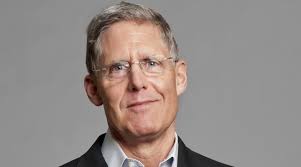 I heard recently that “days are long but life is short.” It’s important to step back and ask what matters. We are all different and have an opportunity to take advantage of our unique circumstance and gifts and apply those to achieve “success” as we define it. I try to step back and ask, “Have we achieved those things in life that matter most to us?” “What have you done with your gifts?” It’s not what’s in the bank or on paper.
I heard recently that “days are long but life is short.” It’s important to step back and ask what matters. We are all different and have an opportunity to take advantage of our unique circumstance and gifts and apply those to achieve “success” as we define it. I try to step back and ask, “Have we achieved those things in life that matter most to us?” “What have you done with your gifts?” It’s not what’s in the bank or on paper.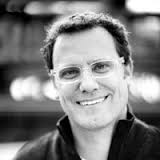 Work should be more like play, not playful. Serious, strategic, provocative, thoughtful, innovative, creative, spirited. Those were the things I wanted to affirm. I wanted to bring this important philosophy to executives to unleash imagination, and change organizations.
Work should be more like play, not playful. Serious, strategic, provocative, thoughtful, innovative, creative, spirited. Those were the things I wanted to affirm. I wanted to bring this important philosophy to executives to unleash imagination, and change organizations.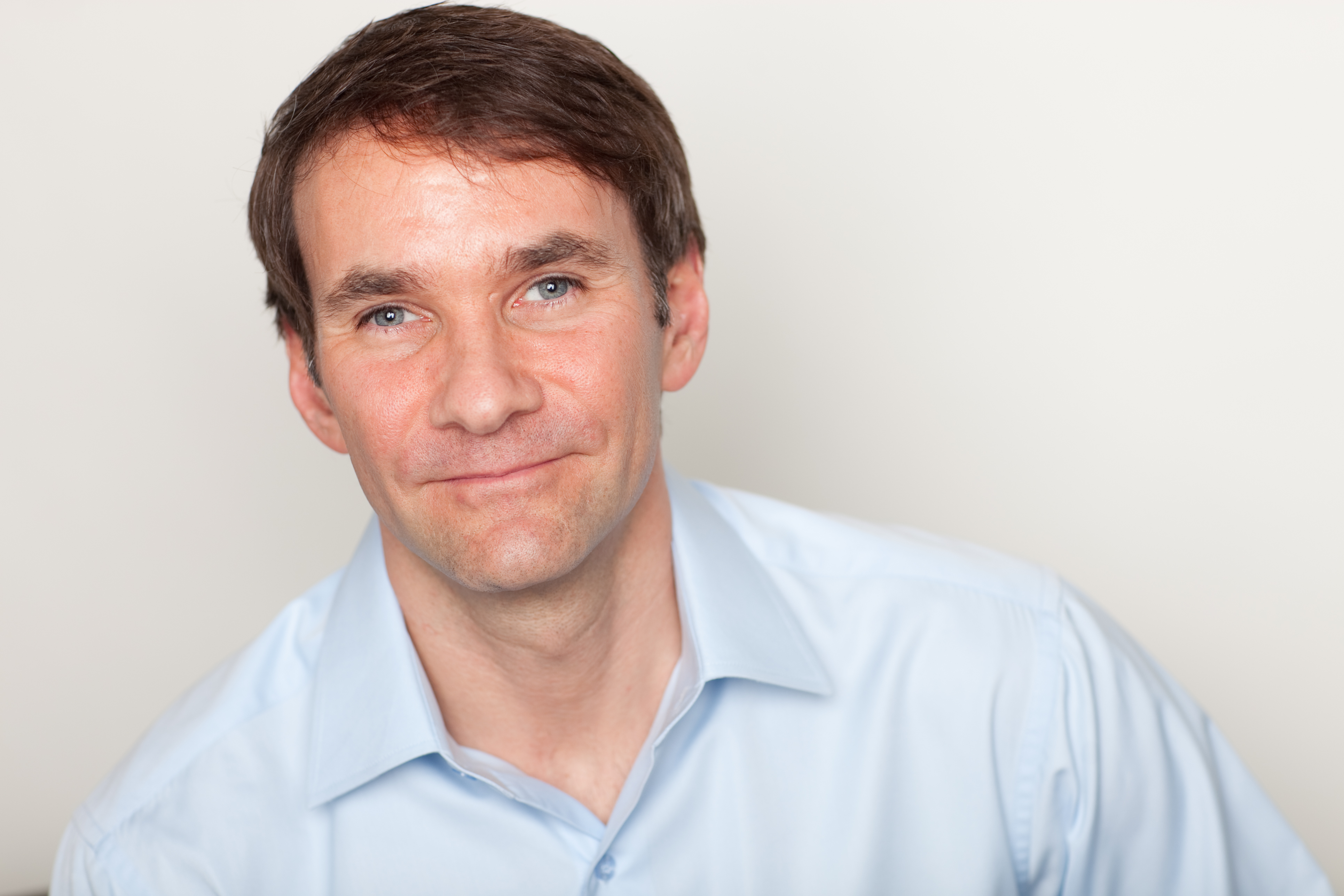 It started with our own practice of doing cultural transformation in organizations, especially in sales organizations. And I learned that when you’re trying to build relationships it’s important to be of service. I joke that the first rule of relationships is that nobody has time for one with you! So you better make sure that you’re reaching out with enormous generosity. We’ve been teaching and coaching that with managers and leaders. I found that people were willing to change if leaders were of service to their people; that’s what had predictive power. If you want your people to change make sure they recognize that you’re in service to them. I started looking at how could change my own behavior. I started experimenting with things in social contexts. How can I and my family practice generosity and service?
It started with our own practice of doing cultural transformation in organizations, especially in sales organizations. And I learned that when you’re trying to build relationships it’s important to be of service. I joke that the first rule of relationships is that nobody has time for one with you! So you better make sure that you’re reaching out with enormous generosity. We’ve been teaching and coaching that with managers and leaders. I found that people were willing to change if leaders were of service to their people; that’s what had predictive power. If you want your people to change make sure they recognize that you’re in service to them. I started looking at how could change my own behavior. I started experimenting with things in social contexts. How can I and my family practice generosity and service?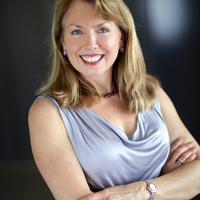 Careers and Work/Family are both long-term interests of mine. Over time I’ve combined the two. I think crafting a sustainable career must start from a foundation of deep self-awareness, understanding, for example, what am I good at, what do I really care about, how can I keep learning, how can I follow my passions and make money from it so it’s truly sustainable. This is about a work/life integration over the life course.
Careers and Work/Family are both long-term interests of mine. Over time I’ve combined the two. I think crafting a sustainable career must start from a foundation of deep self-awareness, understanding, for example, what am I good at, what do I really care about, how can I keep learning, how can I follow my passions and make money from it so it’s truly sustainable. This is about a work/life integration over the life course.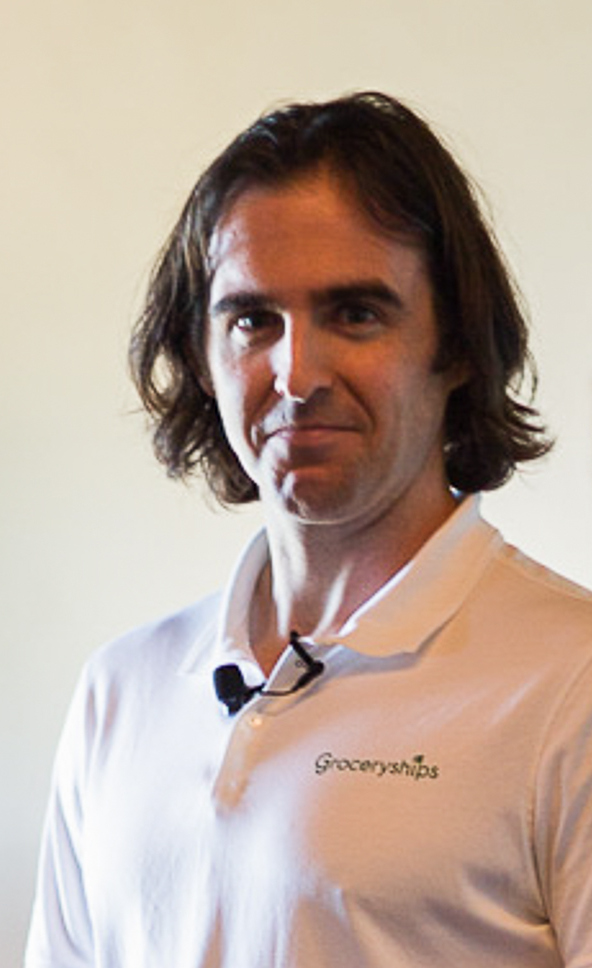 I went to Wall Street when I was 22 years old, just out of Columbia. I remember going onto the trading floor and everything I wanted in life was right there. I grew up sort of middle class. My dad read about successful businessmen in the paper every day and being successful was ingrained in me. When I walked onto the trading floor, I could tell just by looking at the clothes people wore – their haircuts, their suntans (you could tell they played golf) – that I’d never seen people as wealthy as this. And it was everything I wanted.
I went to Wall Street when I was 22 years old, just out of Columbia. I remember going onto the trading floor and everything I wanted in life was right there. I grew up sort of middle class. My dad read about successful businessmen in the paper every day and being successful was ingrained in me. When I walked onto the trading floor, I could tell just by looking at the clothes people wore – their haircuts, their suntans (you could tell they played golf) – that I’d never seen people as wealthy as this. And it was everything I wanted.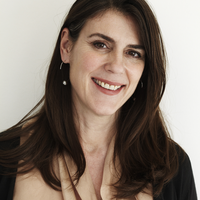 Networking is about getting to know other people, finding out what’s out there. You may not even know what kind of help you need yet. One of the great things about networks is they can give you help that you weren’t even asking for.
Networking is about getting to know other people, finding out what’s out there. You may not even know what kind of help you need yet. One of the great things about networks is they can give you help that you weren’t even asking for.